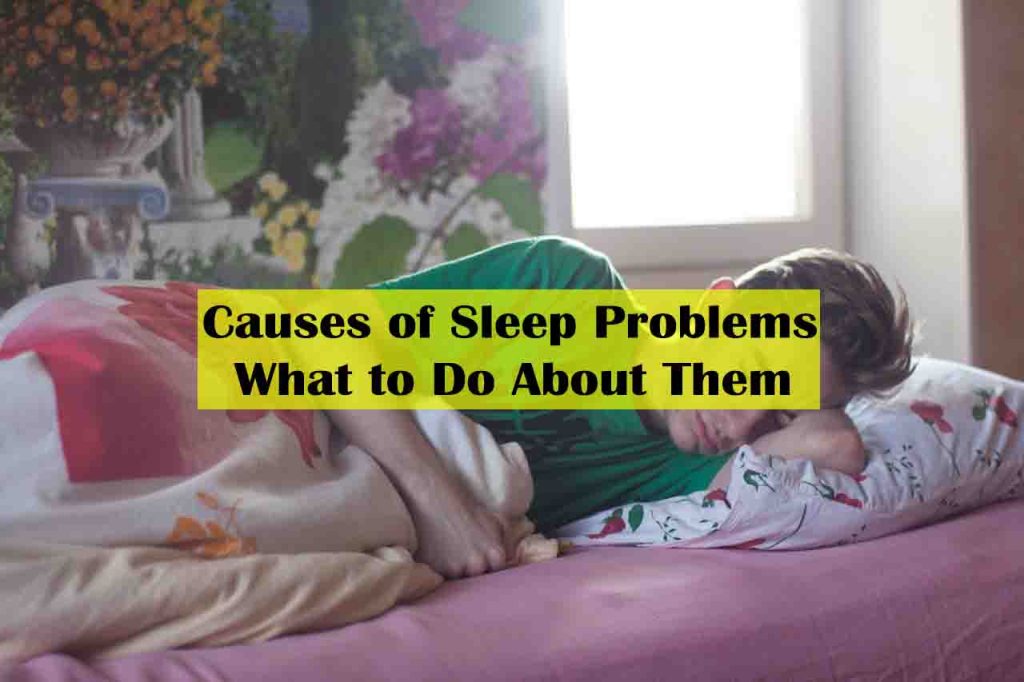We’ve all experienced being worn out and having trouble falling asleep, but did you know there are several underlying reasons for sleep issues? That’s accurate. A lack of restful sleep that may appear to be caused by pushing yourself too hard may be a sign of something more serious.
Although each person is unique, it’s essential to consider specific common reasons for sleep problems. Let’s examine the eight most typical reasons people have sleep issues and how you can improve your ability to get a decent night’s sleep.
Stress
Unsurprisingly, stress is among the most often stated factors in irregular sleep patterns. It might be challenging to turn off your thoughts and enter rest mode when feeling stressed and overburdened. Even if you can fall asleep, stress can cause your body to stiffen, making it difficult to sleep well.
Practice relaxation methods like deep breathing, yoga, or meditation if stress keeps you up at night. Try sleeping at the right hours and clearing your mind can be good ways to relieve stress and prepare your body for sleeping.
Insomnia
People who have a chronically hard time sleeping might have a sleep condition called insomnia. Even when fatigued, people with insomnia may find it difficult to fall or remain asleep, compromising the quality and amount of their sleep.
It’s crucial to visit a doctor if you suspect you could have insomnia. Your doctor can rule out any underlying medical conditions that may cause your insomnia and provide treatment choices, including medication such as Ambien, cognitive behavioural therapy, lifestyle adjustments, or combination treatments to help you fall asleep faster.
A typical ambien pill expenses: $0.47 per pill, so don’t worry if your doctor prescribes this type of pill. Some other treatments may include lifestyle changes like avoiding caffeine and developing a regular bedtime routine. Remember that insomnia is curable, and you may quickly start getting better rest with the correct assistance.
Interrupted Sleep
Interruptions can also cause sleeping problems. This can happen when your sleep cycle is continuously disturbed by a snoring companion, recurring nighttime awakenings, outside noise, or any stimuli. It may be difficult to fall asleep again if you wake up several times at night.
Try using an earplug or a white noise machine to drown out distracting noises if disrupted sleep is giving you trouble. Creating a cozy, dark sleeping environment in which you feel at ease enough to nod asleep.
Medication Side Effects
Due to their side effects, which disrupt our regular sleep cycles, many drugs can also lead to sleep issues. Consult your doctor or pharmacist if you regularly take any medications to determine whether this might cause sleep issues.
Your doctor might be able to advise you on better choices or mitigation techniques for the negative effects of the medicine. They might even be able to modify your medication’s dosage or schedule in some circumstances to lessen its effect on your ability to sleep.
Uncomfortable Bed
Uncomfortable beds or sleeping surfaces can also cause sleep issues, as they may make it difficult to get comfortable and drift off. If you’ve been waking up feeling tired and achy, it might be time for an upgrade. Look for mattresses that offer support and cushioning where you need it most. A mattress topper may also help keep you comfortable throughout the night.
With a supportive mattress, make your sleeping environment as cosy and inviting as possible. Invest in some quality bedding that feels nice for your skin, and consider using blackout if bright lights keep you up at night.
Anxiety
Another factor contributing to sleep issues is anxiety. It’s common to have anxiety occasionally, but obtaining the restorative sleep you require can be challenging when your worries keep you up at night. Ask for assistance if your anxiety bothers you and keeps you awake. Your anxiety might be better understood and managed if you speak with a therapist or counselor.
Sleep Apnea
Sleep apnea should not be ignored. This condition causes short pauses in breathing while you sleep because of blocked airways. Snoring, sleep apnea, and even excessive daytime drowsiness may occur.
Speak to your doctor about your sleep apnea first. They can advise making lifestyle adjustments or using therapies like a CPAP(continuous positive airway pressure) machine, which provides oxygen in tiny quantities while you sleep. You can sleep well if you take action to resolve the problem.
Alcohol Consumption
Alcohol consumption can also interfere with your sleep, even if it helps you drift off initially. Alcohol suppresses your REM or Rapid Eye Movement sleep cycle, which means that while you may get some shut-eye after a few drinks, your sleep quality will be poor, and you might wake up groggy and unrested.
If you’re having trouble sleeping, it’s best to avoid alcohol altogether or limit your intake to only one or two drinks. And try not to drink too close to bedtime, as this could make it harder for you to fall asleep and stay asleep throughout the night.
Final Thoughts
Getting a good night’s sleep is essential for our physical and mental health, so it’s important to address any underlying causes or triggers if you are having difficulty. From disruptive noises to uncomfortable beds and medications with side effects, many potential factors can interfere with our ability to rest peacefully. Take the time to assess your sleeping environment, lifestyle habits, and medications to see if any adjustments are necessary. Therapy options like BetterHelp can also provide valuable support in addressing sleep-related issues, helping you take the necessary steps for better rest.

